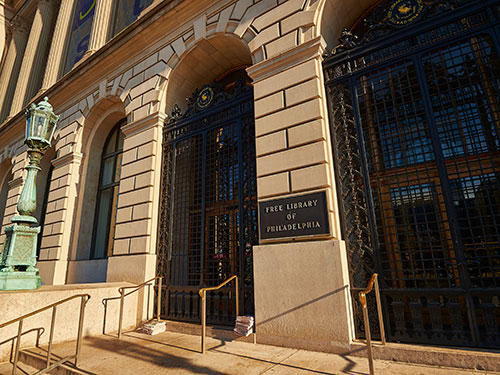Time to attack the deadbeat culture
I’m not surprised that some students staged a sit-in to protest possible expulsion from Thomas Jefferson University for failure to pay their tuition bills on time.

Students complained it was, like, so harsh, that the administration demanded they pay their bills. The Inquirer story notes many students face financial hurdles.
I know the feeling. I went to college at night and worked during the day because I faced financial “hurdles.” I was taught by my parents I had to be able to pay for things I wanted.
Crazy, I know.
I’m not surprised that the university made a U-turn and told the students they would not be kicked out for not paying their bills this term, but they would not be allowed to return next term if they were in arrears. Cruel, I know.
We’ll find out later if the administrators — trigger warning — stick to their guns.
Is it a generational gap — or a cultural chasm — for me to observe that if I didn’t pay my tuition bill I would have been barred from class? That was in the ‘60s, when there was all kinds of social and political turmoil on college campuses, but the idea that students had to pay for classes, and books, and cafeteria meals, went unchallenged.
When I taught at Temple in the ‘70s and ‘80s the same rules applied. If you didn’t pay, you didn’t play. That was understood by both sides.
When did the rules change and who changed them? When did the idea that you can be a deadbeat take hold? When did the concept of personal responsibility become obsolete?
Nonpayment of another type, for student lunches, was a problem in New Jersey. Several stories broke at the beginning of the school year, with one district saying it might report the deadbeat parents for child abuse. That seemed harsh.
But lesser attempts to cut down on the freeloading were opposed. School districts that served tuna fish or cheese sandwiches to students in arrears also were criticized, along with districts that threatened to withhold food, period.
On Tuesday, Cherry Hill said it would not withhold food, but would punish the students in other ways, such as loss of extracurricular activities.
Let’s unpack this picnic basket.
Let’s agree that children should not be punished because their parents didn’t pay a bill. I don’t see a tuna fish sandwich as “punishment,” even though some parents claim tuna fish is a sort of Scarlet Letter.
Let’s also agree that the school lunches must be paid for by parents, assuming they are able to pay. If they are unable to pay, I’m certain there’s a government program to help them.
That leaves us with the parents who are able to pay, and choose not to, shifting the cost of the meals to other parents. Is that fair?
I’d recommend the school district go after them the way any creditor goes after money owed — through the courts, by garnishing wages.
Finally we get to this: The Free Library is thinking about eliminating late fees.
Although City Council doesn't have a say in this, you know you can’t keep the clowns in the car, and Councilwoman Cherelle Parker thinks we ought to end late fees because they are regressive (she was for the regressive soda tax) and they penalize poor people.
No, they penalize deadbeats. The poor are no more likely to be tardy than the rich.
The Free Library collects about $400,000 a year in late fees, which are 25 cents a day for hardcover books, up to a maximum of $10. Fees for DVDs and CDs are similar and borrowers can take up to 40 books and 10 DVDs at one time, which is wildly permissive. Children under 12 are already exempt from the late fees, which is another mistake. I’ll tell you why in a moment.
The Inquirer editorialized in favor of dropping the fees, and imagined (getting it wrong) those opposed to dropping the fees would use words like “coddling” and “handouts.”
No, the operative word is “responsibility.” The library is free, but there is an expectation borrowers will play by the rules.
Returning borrowed materials on time should be simple courtesy, but we know some people need to be prodded.
No one should be discouraged from using the library, the editorial says. But the fine doesn't discourage use of the library, it discourages abuse of the library. Someone waiting for a book or a video can’t get it while some selfish SOB is hogging it.
If you behave responsibly and return the material on time, there is no fine, so the poverty argument is fallacious, seeking to stir class warfare. Late fines encourage responsibility.
And when responsibility is learned, in the future the borrower will be less likely to be kicked out of college for failure to pay tuition on time.



